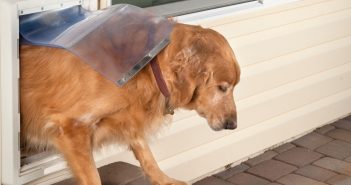Thanks to Craig’s comment on an earlier pet food recall post, I saw this Carousel Pet Treat FDA Health Alert that I’d missed earlier. Thank you, Craig . . .
FDA Health Alert for Certain Pet Treats Made by Pet Carousel
Products may be contaminated with Salmonella
The U.S. Food and Drug Administration is issuing this health alert to warn consumers not to use Pig Ears and Beef Hooves pet treats manufactured by Pet Carousel because the products may be contaminated with Salmonella. The products were distributed nationwide in both bulk and retail packaging for sale in pet food and retail chain stores. Pet Carousel is based in Sanger, Calif.
The products were manufactured under conditions that facilitate cross-contamination within batches or lots. Although no illnesses associated with these products have been reported, the FDA is advising consumers in possession of these products to not handle or feed them to their pets.
The affected pig ear products were packaged under the brand names Doggie Delight and Pet Carousel. The affected beef hooves were packaged under the brand names Choo Hooves, Dentley’s, Doggie Delight, and Pet Carousel. All sizes and all lots of these products made by Pet Carousel are included in this alert.
During September 2009, the FDA conducted routine testing of pig ears made by Pet Carousel. The test results detected a positive reading for Salmonella. This prompted an FDA inspection of Pet Carousel’s manufacturing facilities. During the inspection, the agency collected additional pet treat samples. Further analysis found Salmonella present in beef hooves, pig ears and in the manufacturing environment.
Salmonella can affect both humans and animals. People handling dry pet food and/or pet treats can become infected with Salmonella, especially if they have not thoroughly washed their hands after having contact with the treats or any surfaces exposed to these products. Consumers should dispose of these products in a safe manner by securing them in a covered trash receptacle.
Healthy people infected with Salmonella may experience some or all of the following symptoms: nausea, vomiting, diarrhea or bloody diarrhea, abdominal cramping and fever. Although rare, Salmonella can result in more serious ailments including arterial infections, endocarditis (inflammation of the lining of the heart), arthritis, muscle pain, eye irritation, and urinary tract symptoms. Consumers exhibiting these signs after having contact with this product should contact their health care provider immediately.
Pets with Salmonella infections may become lethargic and have diarrhea or bloody diarrhea, fever and vomiting. Some pets may only experience a decreased appetite, fever and abdominal pain. Infected, but otherwise healthy pets can be carriers and infect other animals or humans. If your pet has consumed any of the affected products or is experiencing any of these symptoms, contact your veterinarian immediately.
The FDA will continue to investigate this matter to determine the source of the Salmonella contamination and offer updates as appropriate.
Consumers can report complaints about FDA-regulated pet food and pet treat products by calling the consumer complaint coordinator in their area. You can locate the nearest consumer complaint coordinator at: http://www.fda.gov/Safety/ReportaProblem/ConsumerComplaintCoordinators/default.htm




2 Comments
It’s really sad how many toxins manage to slip by in products made for pets, and a lot of them come from things you wouldn’t even think of… My friend’s dog got sick from wrapping paper of all things (they have their dogs open their own presents). I mean you can get pet-safe wrapping paper at Petco, but who would have even thought that plain old gift wrap might be dangerous?
Oh man. Thanks for this info. Super scary that they let this stuff slip through.